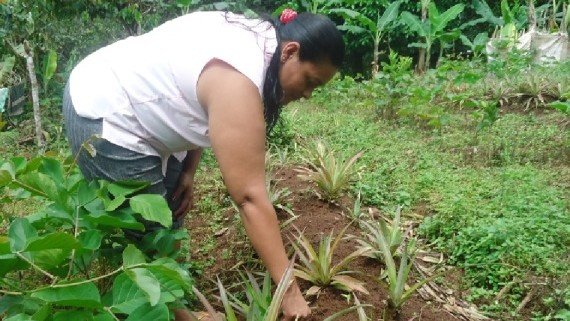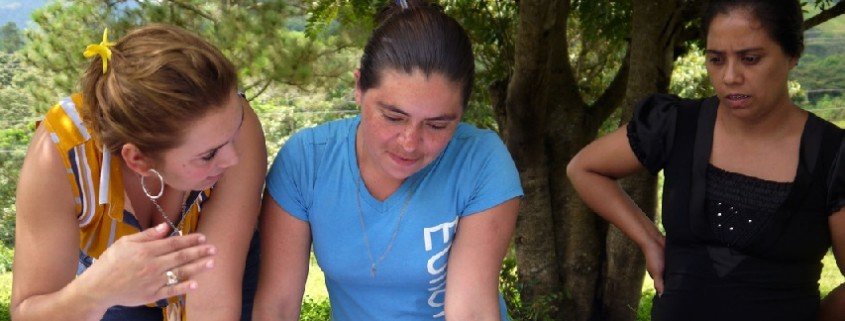On a recent delegation trip with Amos Trust, Jenny Richardson wrote this poem and meditation after meeting with women in a rural community to learn about their experience with Prestanic, a microcredit organization that has strong ties to CEPAD. We are thankful to share it here.
I am a woman.
I raise my family in one room and create our home.
The government gives us materials for a roof
and we can shelter from the rain.
I wash our clothes in the stream
and watch the bright colours dancing as they hang on the washing line.
I pick the fruit,
Growing in abundance,
to feed my family.
Do you think I am poor?
Do you not see, I am a strong Nicaraguan woman?I helped my mother to sell the bread she made.
It was all too much
and I left to live on the streets.
I took drugs but have been given a road to a new life.
I want to be a fashion designer
and my mother will be proud of me.
Do you think I am poor?
Do you not see, I am a strong Nicaraguan woman?I meet with my friends
and we delight in sharing news of our business ventures.
We slaughter pigs,
sell clothes,
Bake bread,
And with our profits we repay our loans and provide for our children’s education.
Do you think I am poor?
Do you not see, I am a strong Nicaraguan woman?
I teach my children to harvest the ripe coffee,
To work the processing machine outside our home.
To sort the best coffee beans for market
And to carry the precious load to market.
Do you think I am poor?
Do you not see, I am a strong Nicaraguan woman?
I have lived through change in Nicaragua.
Friends have died in the 1972 earthquake.
Relatives have been caught up in the fighting between the Contras and the Sandinistas.
Yet I welcome the hope that the government gives me.
Do you think I am poor?
Do you not see, I am a strong Nicaraguan woman?
You ask me about faith.
I am a Catholic and an Evangelical.
Faith is a gift of God.
It is no ones property.
I live with dignity as a daughter of God.
My theology takes me out of the door of the church into the streets
To work for justice and reconciliation.
Do you think I am poor?
Do you not see, I am a strong Nicaraguan woman?
We nurture our children
And they are proud of being Nicaraguan.
As they grow stronger
Nicaragua will continue to flourish.
They are are our hope and our future.
Do you think we are poor?
Do you not see we are strong Nicaraguan women?
I am Mary,
A girl from Nazareth.
Engaged to be married.
I trust God.
He will liberate the poor.
He will bring down the mighty.
He has chosen me and I say ‘yes’.
I will be the Mother of God’s son,
With all it’s joys, challenges and responsibilities.
Do you think I am poor?
Do you think I am weak?
Do you think I am holy?
Don’t you see, I am a strong woman.





